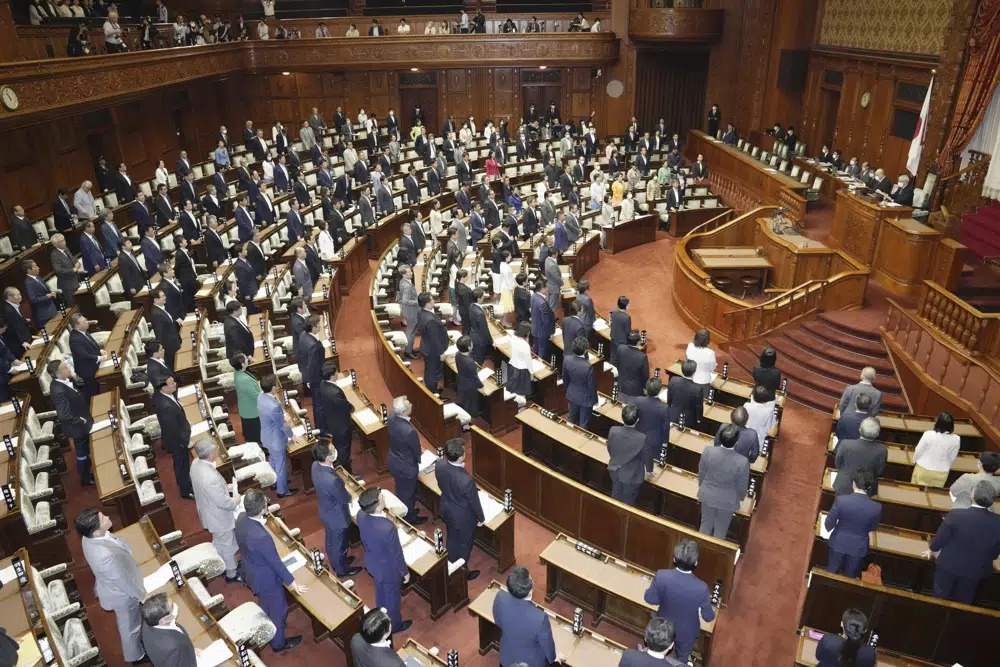Japan Raises Age of Sexual Consent to 16, Aligning Closer with International Standards.
Japan’s parliament recently enacted significant revisions to its laws concerning sexual crimes and LGBTQ+ rights. The reforms represent a landmark shift in a legal landscape long criticized for its inadequacy in protecting vulnerable individuals, particularly women and children. For over a century, Japan’s age of consent remained at 13, a stark outlier among developed nations. This has now been raised to 16, bringing Japan closer to international norms and recognizing the vulnerability of adolescents. This change, a key component of the broader legal overhaul, aims to strengthen the protection afforded to young people from sexual exploitation. The revisions also introduce a new legal concept – “consentless sex crimes” – which expands the definition of rape beyond physical force to include situations where consent is absent due to factors like intoxication, fear, or intimidation. This acknowledges the complexities of sexual assault and recognizes that coercion can take many forms beyond overt physical violence.
The 2023 legislative changes represent a significant step forward in addressing sexual crimes in Japan. Prior to these reforms, Japan’s legal framework regarding sexual assault was notably outdated and inadequate. The previous age of consent, set at 13, was significantly lower than that of most developed nations and left young people vulnerable to exploitation. The definition of rape was narrow, focusing primarily on physical force and neglecting other forms of coercion. This often led to acquittals in cases where victims were unable to prove they physically resisted, even in the face of clear evidence of non-consent. Public outcry, fueled by several high-profile acquittals in sexual assault cases, including one involving a father who raped his 19-year-old daughter, played a crucial role in pushing for legal reform. These cases highlighted the inadequacy of existing laws and the urgent need for greater protection for victims.
The revised laws also address the growing issue of non-consensual image-based sexual abuse. The creation, distribution, and possession of sexually explicit images taken without consent are now explicitly prohibited. This recognizes the devastating impact of such violations on victims and provides a legal framework for holding perpetrators accountable. Furthermore, the statute of limitations for sexual crimes has been extended, allowing more time for victims to come forward and for justice to be pursued. This is particularly important in cases where victims may require time to process their trauma and feel safe enough to report the crime. The increased penalties for perpetrators send a strong message that such crimes will not be tolerated. The combination of these changes aims to create a stronger deterrent against sexual violence and to provide greater support and justice for survivors.
Alongside the reforms related to sexual crimes, the Japanese parliament also passed a new law concerning LGBTQ+ rights. While presented as a step toward greater inclusivity, the law has been met with criticism from activists who argue that it falls short of guaranteeing equal rights for sexual minorities. Japan, despite being a member of the G7, is the only nation in the group without legal protections for LGBTQ+ individuals. While public support for same-sex marriage and other LGBTQ+ rights has been growing, the ruling Liberal Democratic Party has maintained a conservative stance, resisting calls for equality and diversity. The new law, rather than explicitly prohibiting discrimination, states that “unjust discrimination” is unacceptable. This ambiguous wording, viewed by activists as a concession to opponents of LGBTQ+ rights, leaves room for continued discrimination and fails to provide the clear legal protections that the community has long sought.
The controversy surrounding the LGBTQ+ law underscores the complex interplay of social and political forces in Japan. While there is growing awareness and acceptance of LGBTQ+ issues, significant resistance remains, particularly within conservative political circles. The law’s emphasis on creating conditions where “all citizens can live with peace of mind” has been interpreted by some as prioritizing the comfort of those opposed to LGBTQ+ rights over the rights and well-being of LGBTQ+ individuals themselves. This language has drawn strong criticism from activists, who feel that it frames LGBTQ+ identities as a threat to societal harmony rather than an integral part of a diverse society. The failure to explicitly ban discrimination leaves LGBTQ+ individuals vulnerable and reinforces the sense of marginalization and exclusion that they experience.
In conclusion, Japan’s recent legislative changes represent a mixed bag. While the reforms to sexual crime laws mark a significant advancement in protecting vulnerable individuals, the new LGBTQ+ law has been met with disappointment and frustration. The raising of the age of consent, the introduction of “consentless sex crimes,” and the stricter penalties for perpetrators represent crucial steps towards a more just and protective legal framework for victims of sexual violence. However, the ambiguity and lack of clear protections within the LGBTQ+ law highlight the continuing struggle for equality and recognition for sexual minorities in Japan. The debate surrounding these laws underscores the ongoing tension between progressive values and conservative resistance in Japanese society, with the fight for true equality and inclusion for all citizens still ongoing.
Share this content:












Post Comment